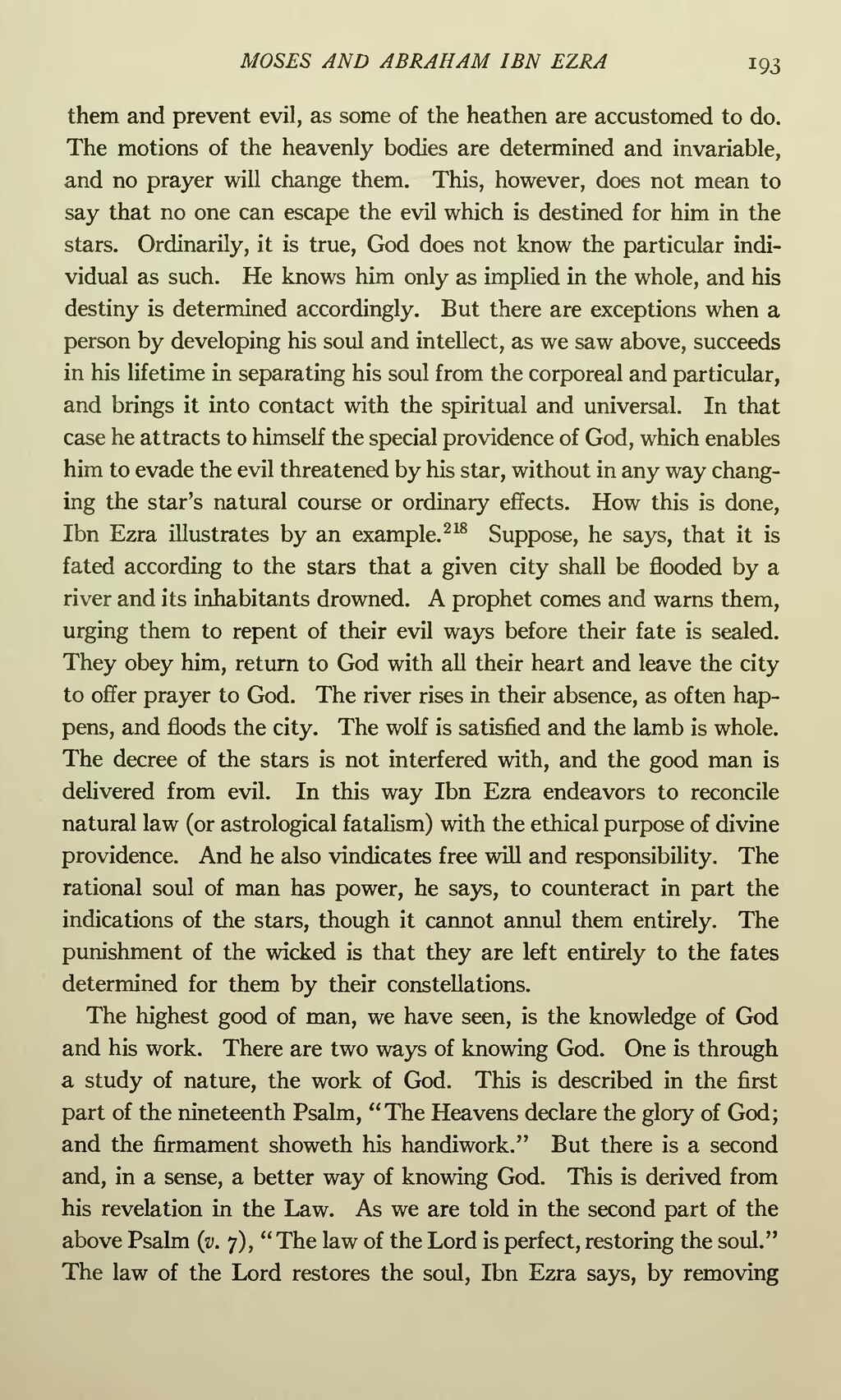them and prevent evil, as some of the heathen are accustomed to do. The motions of the heavenly bodies are determined and invariable, and no prayer will change them. This, however, does not mean to say that no one can escape the evil which is destined for him in the stars. Ordinarily, it is true, God does not know the particular individual as such. He knows him only as implied in the whole, and his destiny is determined accordingly. But there are exceptions when a person by developing his soul and intellect, as we saw above, succeeds in his lifetime in separating his soul from the corporeal and particular, and brings it into contact with the spiritual and universal. In that case he attracts to himself the special providence of God, which enables him to evade the evil threatened by his star, without in any way changing the star's natural course or ordinary effects. How this is done, Ibn Ezra illustrates by an example.218 Suppose, he says, that it is fated according to the stars that a given city shall be flooded by a river and its inhabitants drowned. A prophet comes and warns them, urging them to repent of their evil ways before their fate is sealed. They obey him, return to God with all their heart and leave the city to offer prayer to God. The river rises in their absence, as often happens, and floods the city. The wolf is satisfied and the lamb is whole. The decree of the stars is not interfered with, and the good man is delivered from evil. In this way Ibn Ezra endeavors to reconcile natural law (or astrological fatalism) with the ethical purpose of divine providence. And he also vindicates free will and responsibility. The rational soul of man has power, he says, to counteract in part the indications of the stars, though it cannot annul them entirely. The punishment of the wicked is that they are left entirely to the fates determined for them by their constellations.
The highest good of man, we have seen, is the knowledge of God and his work. There are two ways of knowing God. One is through a study of nature, the work of God. This is described in the first part of the nineteenth Psalm, "The Heavens declare the glory of God; and the firmament showeth his handiwork." But there is a second and, in a sense, a better way of knowing God. This is derived from his revelation in the Law. As we are told in the second part of the above Psalm (v. 7), "The law of the Lord is perfect, restoring the soul." The law of the Lord restores the soul, Ibn Ezra says, by removing
